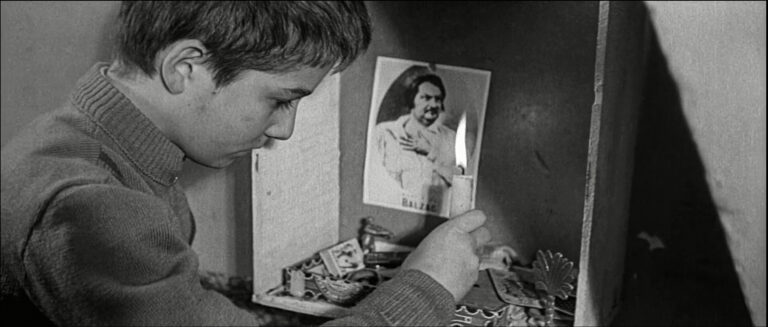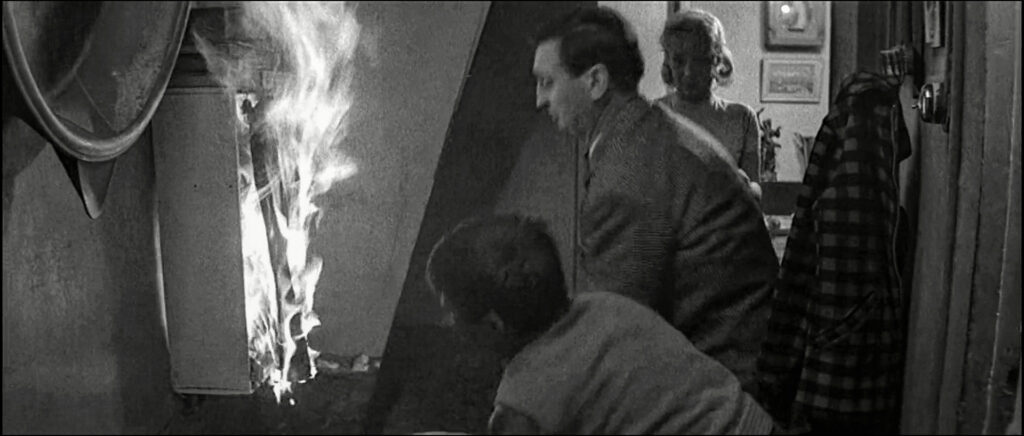Prof. Feroz Hassan is an Assistant Professor in the Department of Humanities and Social Sciences. He specialises in film theory, aesthetic politics and world cinema. He writes on plagiarism by students!
Disclaimer:- The views presented below are the author’s own and are not in any manner representative of the views of Vox Populi as a body or IIT Kanpur in general.
Every semester, way more often than I would like to (which is never), I give students a zero on an assignment for plagiarism. This, despite laying out the plagiarism policy in the course handout, discussing what constitutes plagiarism in class, AND sometimes after having already penalized the student on an earlier assignment for plagiarism. Such desperate cases make me wonder if there is something really impenetrable about the idea of plagiarism. I think back to incidents from a landmark film, The 400 Blows (1957, France), to remind myself that the concept is not always self-evident.
The 400 Blows is about Antoine Doinel, a kid who gets into trouble regularly at school, treating it as part of all fun-and-games and as a way of dealing with unsympathetic adults. But sometimes it gets serious enough to involve his parents, so he tries to stay out of trouble by staying out of school, taking a day off to explore the city, which only lands him in more trouble. Antoine’s mother decides to deal with him gently for once, offering him a reward if he does well on his French exam. Sufficiently motivated, Antoine starts reading French literature, and is particularly struck by the description of an old man’s death in a novel by one of the foremost French writers, Honoré de Balzac (1799-1850). He is so affected by this description that he builds a little shrine to Balzac in the house, places a candle in front of it and prays to it. This almost burns the house down.




Come exam time, on being asked to write an essay on a topic of his choice, Antoine writes about the death of “his” grandfather, reproducing Balzac’s words, which he has by now memorized thoroughly, verbatim. The thing to note is that he does not copy. When returning the students’ answer scripts, the teacher accuses him of plagiarism. The writing is certainly not a 12-year old’s and Balzac’s work is too famous to go unremarked. (Plagiarism is generally very easy to notice until the undergraduate level.) But Antoine very sincerely protests his innocence, and his friend backs him up by asserting that Antoine did not copy. The teacher, of course, will have none of it, and both Antoine and his supportive friend are thrown out of class. Antoine ends up in deeper trouble.
As a spectator, we know that what Antoine did technically constitutes plagiarism, but also that he really did believe he was being honest in what he wrote. We have been witness to his enchantment by Balzac’s novel, and he identifies so strongly with the events it narrates that they become his own. Our sympathies, therefore, are entirely with the student and against the pedantic teacher. And when I come across yet another case of plagiarism, I do have to pause and wonder if I am being the pedant, failing to see an earnest attempt gone wrong, which probably won’t change the evaluation but might give the student a chance to make amends.
In the end, I wish there were enough evidence to label me a pedant, but there generally isn’t. Antoine managed to memorize a substantial text through a strong desire to become attached to it. In our courses, we come across copy-paste jobs from random sources. Antoine knows that a certain quality of writing cannot be improved. We come across attempts by students to cover their tracks by using a thesaurus to substitute words, making for garbled sentences. (Synonyms listed in a thesaurus are words with related meanings, but whose usage can differ vastly depending on context. Using them interchangeably yields nonsense.) Finally, unlike Antoine, you have been told what plagiarism is.
I do understand the challenges for students in writing something on their own when their entire education so far has been based on rewards for rote learning. The difficulties of writing in a language not your own is another major problem. Dealing with entirely new ways of understanding things and new ideas, is yet another challenge. The shift from the level of education in schools to the undergraduate level is drastic for most of us. But these can be addressed to some extent if you approach your instructors early enough and put in the extra work needed to overcome them. You also need to give yourselves time, generally a couple of years, to learn new ways of doing things. Merely expecting a free pass because you have been taught skills that are no longer valid, if they ever were to begin with, will only postpone your having to deal with them in your careers.
Lastly, plagiarism is part of a larger issue, which is of giving importance to what is said and how it is said. Temptation to plagiarize can be resisted if you attach importance to your own thoughts, believe that you have something important to say about whatever it is you are studying, and take responsibility for making yourself understood by others in expressing your thoughts clearly, with skills however limited. I have taught students whose native language is English, and just as many of them as students here struggle with writing, which suggests that the problem is elsewhere.
If you are doing a course or an assignment merely to make up the numbers, then you may have to learn to take your results as impersonally, in as detached a manner, as you take the course.
(Do look up The 400 Blows! You won’t regret it.)
~ Prof. Feroz Hassan






































